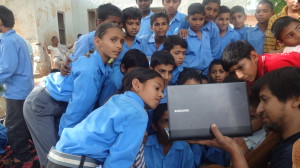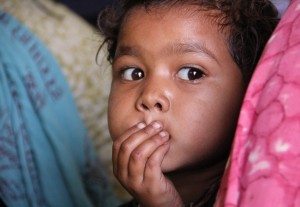I want to continue the discussion on how do we educate our children, particularly pre-school and primary school children. I can never get tired of recalling what my grandfather, a monk had told me years ago, when I had just become a young parent. He said, ‘don’t teach your children. They observe you all the time’. A rather, tough call. We make our conduct a book of what we think is right. I remember that first time when I confronted this situation from my children. I was reaching a book or newspaper lying down. My son asked, didn’t I tell him to sit straight while studying. I recalled my father making the similar compromise. But I hadn’t questioned his hypocrisy. There were many worse moments when my hypocrisy was much more acute and obvious. After a while, children just ignored it, they had figured out by then that it was ( nearly) a failed enterprise. Reforming me, was not a very fruitful project. But surely, the readers can do better.
Many parents look for a costly school (idea is that higher the fees, more worthwhile the education may be, ah!) and then think that teachers can do parenting. They can outsource the task of being a role model to the teachers and then relax, compromising and cutting corners at every possible opportunity (I am exaggerating, of course). The real tragedy is that when we brush aside their uncomfortable questions. Seldom do we say that we don’t know the answer to their questions and will get back to them after doing some homework or ask another expert. I am keen to hear form those parents who actually do research to answer the seemingly absurd questions of the tiny tots. I remember one such question: why do you feed the birds and squirrels everyday, are not you making them lazy? It was difficult to explain that what I offer is a very small part of their daily diet and in any case, what birds bring n our life is much more valuable than what I contribute. But then I could see a skeptical look on his face. Whether he will develop a habit of feeding the first bread of the day to birds and other life forms or not, is less important, than learning to live with questions which we can not answer convincingly. It is a part of paradoxical life. Is it ok that sometimes, we do unreasonable things and then try to coat those acts with a false rationality. Is life a game of being reasonable all the time? But then giving children a similar privilege doesn’t sound so easy to many of us.
We know that it is not easy to be a a ‘reasonable’ parent, but t surely is possible to be a ‘responsible’ parent. Many of us fail even in the latter role. We are busy with building our career and then by the time we realize, it is too late. What is the way out then. I think giving children a company of books is one of the most gratifying way of overcoming our guilt. I don’t know how many parents spend at least five to ten per cent of their income on books for their children. Having a library at home for children can give them a chance to find their own role models and companions. It is pity that many parents ignore even this responsibility. They will spend two or or three times the costs of books in going to restaurant or elsewhere but not spend a small part of their income on books for children. Why only for your children, but also for children studying in government schools. There is no age at which children can not develop a taste for books.
But inclusive upbringing takes place when instead of circulating costly gifts to other rich kids in school (and making less privileged kids feel inferior), we encourage children to go to a municipal school and contribute small libraries. The schools should actually ban circulation of costly gifts by rich kids in class. It nullifies all the teaching about how to be a responsible citizen. Frugal consumption is an important part of growing up and learning to lead a sustainable lifestyle.


